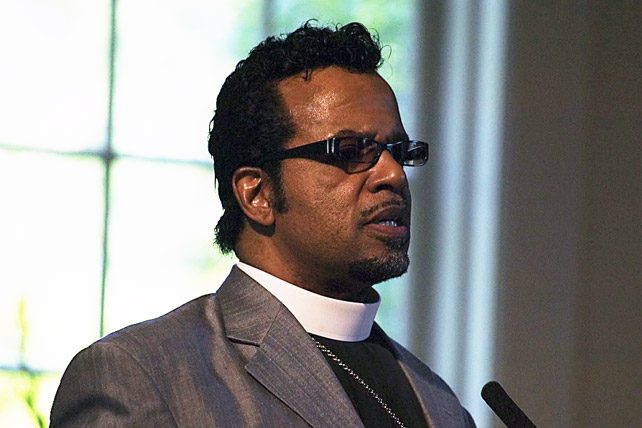Overall, Pearson’s embrace of universal salvation was a pivotal moment in his life and career, shaping his subsequent advocacy for greater inclusion and acceptance within Christianity.
Facing Criticism: Pearson’s Push for Inclusion
Carlton Pearson faced significant criticism for other controversial beliefs, particularly in his push for greater inclusion within Christianity. Pearson’s belief that God’s love extends to all people, regardless of their sexual orientation, challenged centuries-old theological doctrines.
Despite the backlash, Pearson remained steadfast in his conviction that Christianity should be a religion of love and acceptance. He argued that exclusionary practices contradicted the teachings of Jesus, who emphasized compassion and forgiveness.
Throughout his career, Pearson emphasized the need for Christians to embrace a more compassionate and inclusive approach. His message resonated with many who felt marginalized or rejected by traditional religious institutions. His beliefs and advocacy drew significant criticism from those who viewed his views as a departure from biblical teachings.
Despite the controversy, Pearson’s commitment to inclusivity and love has left a lasting impact on many individuals and communities. His legacy serves as a reminder of the ongoing tension between orthodoxy and progress within Christianity.
Pearson’s support for LGBTQ+ rights aligned with his broader message of inclusion and acceptance. He cited biblical teachings emphasizing love and compassion as the basis for his beliefs. One verse he often referenced was Galatians 3:28: “There is neither Jew nor Greek, slave nor free, male nor female, for you are all one in Christ Jesus.” Many accused him of straying from traditional teachings and undermining the authority of Scripture. Despite the backlash, he remained committed to advocating for LGBTQ+ rights and challenging the exclusionary practices of the church.
Some individuals within the LGBTQ+ community found solace and support in Pearson’s message. They saw his advocacy as a sign of progress and hope for greater acceptance within religious communities. Pearson argued that it was essential to embrace and love LGBTQ+ individuals as they are, rather than condemning or excluding them. He supported the idea that God’s love is unconditional and that all people, including LGBTQ+ individuals, should be fully welcomed and affirmed within the Christian community.
Many of Pearson’s critics condemned his stance on LGBTQ+ rights, citing biblical verses that appeared to condemn homosexuality. However, Pearson countered these arguments by emphasizing the importance of interpreting the Bible in its cultural and historical context. He believed that a more inclusive and compassionate reading of Scripture could lead to greater acceptance of LGBTQ+ individuals within the church.

